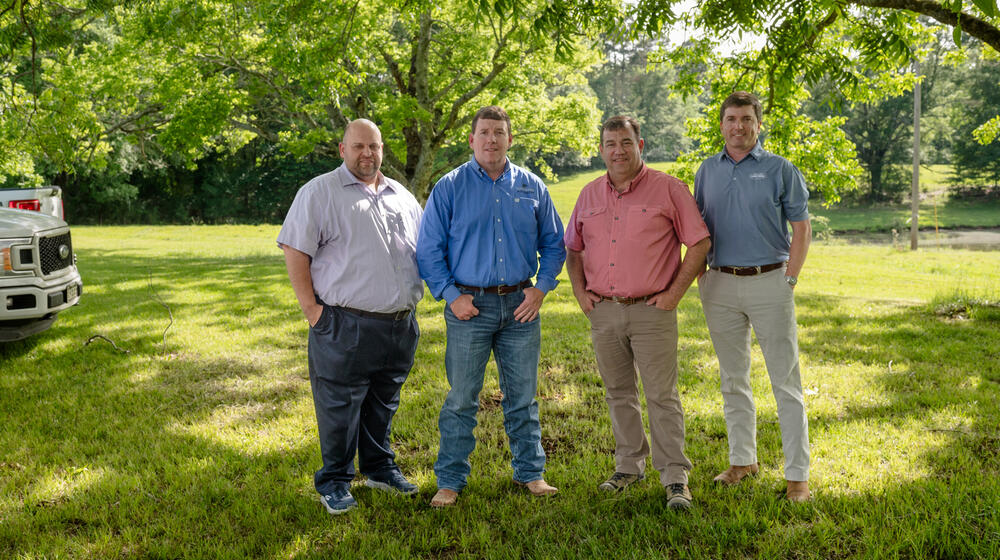Extension Matters
Volume 11 Number 2
Rewarding Excellence
Sale of Junior Champions Committee makes gift to enhance 4-H livestock program
Story by Susan Collins-Smith | Photos by Kevin Hudson and Premier Livestock Imaging
Every year, 4-H’ers and FFA members who show livestock have their sights set on the Dixie National Sale of Junior Champions.
And it’s no easy feat to get there. It takes dedication, time, and hard work. Those that make it there earn it.
“Young people work really hard every year to make it to the sale,” says Ted Kendall IV, a member of the sale’s promotional committee and past committee chair. “The sale is like the Super Bowl for kids that show livestock.”
The sale began in 1970 to encourage young people to participate in livestock showing and reward them for their efforts. Annually, more than 2,000 4-H’ers and FFA members whose animals received a blue ribbon at their district livestock shows participate in the Dixie National Livestock Show held every February in Jackson. In this show, they vie for a spot in the Sale of Junior Champions. Only a select number makes it.
“The first year we had 22 animals in the sale, and total sales were $7,600,” explains Ted Kendall III, one of the original organizers of the sale who still serves on the committee. “We had no idea it would be what it is today. We just wanted to help get kids interested in showing livestock and provide them with a way to reinvest in the next year’s animals.”
Members of the committee have been devoted to helping kids develop life skills through the program, resulting in increased participation by 4-H’ers, FFA members, and buyers.
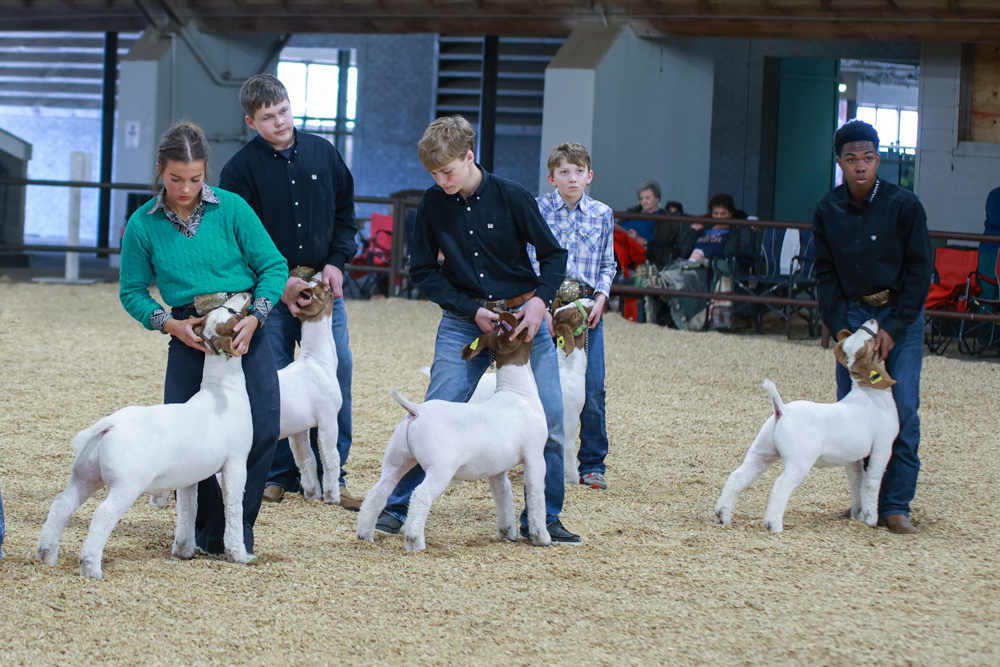
In 2025, the sale broke all its previously set records, with 49 animals advancing to the sale and total sales surpassing $591,000. That brings the lifetime total of the sale to more than $10 million.
The sale’s 33-member promotional committee also raises educational scholarship funds each year, which are given to exhibitors whose animals don’t make it into the sale. The committee awarded 41 scholarships totaling $85,000 in 2025. Since the scholarship program began in 1993, the committee has awarded more than $1.2 million to 916 Mississippi 4-H’ers and FFA members.
Each year, the committee works closely with the Mississippi State University Extension Service to host the sale, and the committee recently took its support of the state’s young people who show livestock to the next level. They made a second monetary gift to the MSU Foundation to support the Animal and Dairy Sciences 4-H Youth Development Fund, which benefits the Mississippi 4-H livestock and horse programs.
“The Sale of Champions as it is today, is 56 years of development. We couldn’t be happier with what it’s become. Our relationship with the Extension Service and the MSU Foundation is essential to the success of the sale,” says Hunter Taylor, current chair of the sale’s promotional committee.
Much of that success, Taylor says, is due to the work Dr. Dean Jousan, MSU Extension Service 4-H livestock specialist, puts in not only on the day of the sale but year-round. Jousan coordinates the sale along with state Extension-sponsored livestock shows and educational contests throughout the year.
“If it weren’t for Dean, we wouldn’t have a sale. He keeps the wheels greased and everything in motion. We do our part to recruit buyers for the sale, raise funds for the exhibitor scholarships, and make the best decisions we can to keep improving the sale and opportunities for the young people who put in the hard work to make it to the sale,” Taylor explains.
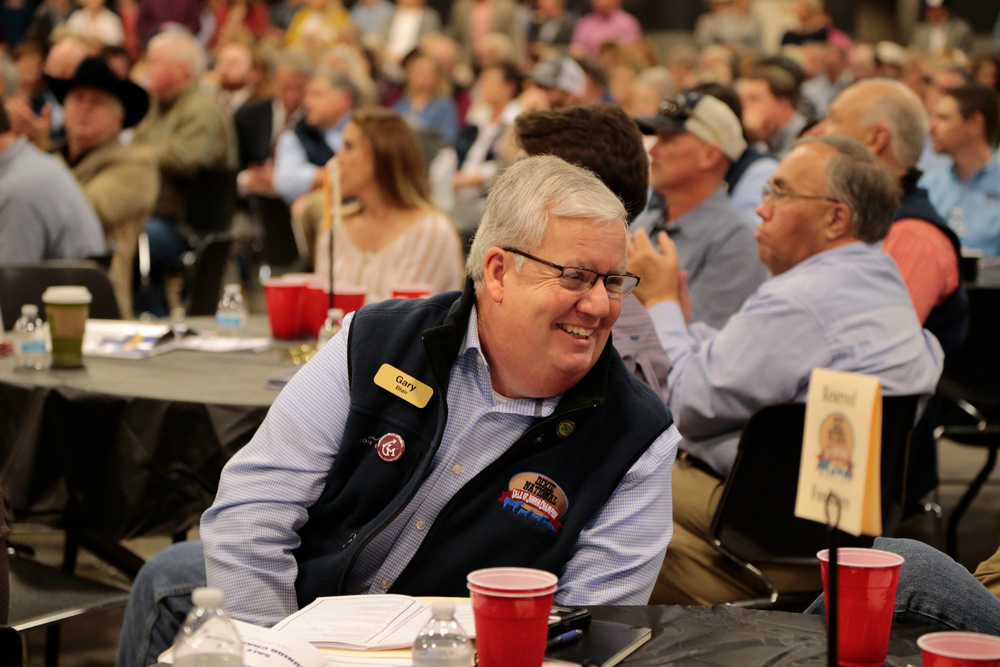
The committee’s monetary pledge is a way to encourage even more participation in Mississippi’s livestock program, explains committee member and past chair Gary Blair.
“This is not only for the Dixie National Sale of Champions; we intend this to be used to help youth as well as the Extension agents in the counties who put in an enormous effort to guide these children throughout the year,” Blair explains. “This is a way for us to give back to the university for what the university is providing to us in the form of Dr. Jousan and all the other Extension Service employees and people that work with 4-H and support the sale.”
Funds from the gift help cover the costs of various needs and expenses related to 4-H livestock and horse programs, including the required electronic identification tags all commercial and market animals must have to be entered into shows. The gift also supports the purchase of supplies and equipment to help 4-H’ers prepare for livestock shows and national contests, including the 4-H Livestock Skillathon Contest.

“Having this annual donation allows us to get needed equipment and supplies that help streamline the livestock validation and animal check-in processes before and during livestock shows,” Jousan points out. “This equipment helps me easily look up animal information, such as ear tattoos and branding information, for registered livestock that are checked in as champion animals.”
Jousan has also used the funds to attend and participate in professional development opportunities to build leadership skills, share information, and network with industry professionals and others in academia, which helps further develop the Mississippi 4-H livestock and horse programs.
Jousan and his colleagues in the Animal and Dairy Sciences 4-H Youth Development office have recently purchased video and sound equipment to produce informational videos to educate and assist youth that show livestock, Extension 4-H agents, and others.
“Today, most people go to YouTube and other media and internet sites for information,” Jousan explains. “We are building a video library that offers information about contest preparation, tips for youth and Extension agents, behind-the-scenes information on various aspects of livestock and horse shows, and advice that may benefit show participants, parents, or others traveling to the shows. Opportunities like this to enhance the Mississippi 4-H livestock and horse programs would not be possible without the gift of the committee.”
Why They Do It
The committee’s work and gift are worthwhile to all members, even though some don’t have personal experience as 4-H or FFA members.
“I’m from the Delta, but my family ended up moving to the Memphis area when I was a child. And I was never in 4-H,” says Taylor. “But serving on the committee gives me a different perspective of 4-H. I thoroughly enjoy being able to contribute to the success of these young people.
“It’s also rewarding from the standpoint that we are contributing to Mississippi’s success—the qualities that the livestock program instills are the qualities that we all want in the future workforce across this state,” he continues.
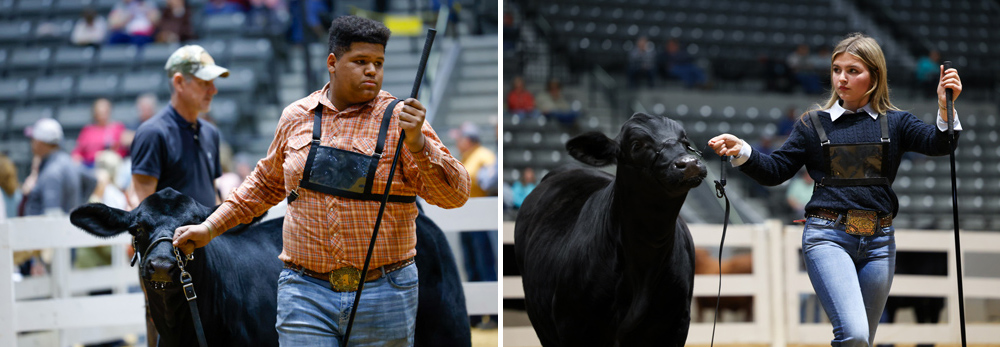
Elliott Fancher, committee vice-chair, is a former 4-H’er and livestock program participant.
“I grew up showing market animals in the Delta, and I’ve seen the sale evolve through the years, get bigger, and grow out of arenas. The arenas I showed in probably wouldn’t even hold the 40 or so exhibitors in the sale today,” he said.
He attributes most of that growth to the fact that the livestock program, at its core, is aimed at personal development.
“We don’t have any trouble getting businesses or individuals to participate as buyers. Once they come the first time, they see the kind of character-development program it is,” Fancher explains.
“Some of the stories that come out of the sale are amazing. After the sale, the animals themselves are donated and processed to provide meals for various soup kitchens, children’s homes, and homeless shelters throughout the state. But the kids can do anything they like with the money they are awarded. Many of them use it toward their college education.”
However, there are multiple instances where exhibitors donate their money to an individual or charitable organization.
“Numerous times, we had an exhibitor donate their winnings to a classmate who was fighting cancer or illnesses at a hospital—just this year, we had an exhibitor donate their winnings, which turned out to be more than $30,000, to Children’s of Mississippi Hospital because that is what she wanted to do,” Fancher emphasizes. “These are 10-, 11-, and 12-year-olds that are making these decisions—by themselves. That’s the kind of program this is.”

Many of the young people who participate in the livestock program want to work for Extension or in the agriculture industry and remain in Mississippi, says Ted Kendall IV.
“You hear people talk about brain drain and all the talent we have leaving the state,” he says. “But that’s not these kids. They want to stay.”
The strength of 4-H is one of the reasons for that.
“These kids are a product of this program, and the product is second to none,” says Andy Berry, committee secretary/treasurer. “These kids are homegrown Mississippians, and they almost always stay here. A strong youth program is crucial to creating a knowledgeable, capable, and compassionate future generation.
“The Sale of Junior Champions is about rewarding excellence and hard work. That’s one reason I am proud to serve on the committee. It’s not a show where everyone gets a ribbon. The sale motivates kids and their families to be the best,” Berry explains.
Helping hardworking young people earn an education and having them want to return some of those dividends back into the state is one of the most rewarding aspects of serving on the committee for Blair.
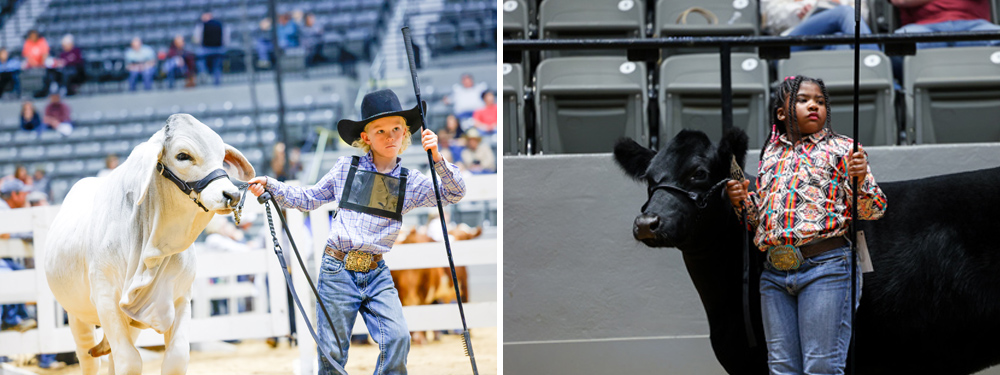
“The best thing that I feel like we do with the Sale of Champions is provide scholarship money or sale monies for them to further their education,” he says. “I always enjoy seeing young people that got involved with showing an animal at a young age, had an opportunity to have an animal make the sale, and then go through high school and college and come out into the working world.
“It’s not just those that make it into the sale. The ones that are awarded scholarships have put a lot of effort and work into it as well,” Blair continues. “They submit an application along with their goals and needs. Getting the opportunity to read through and judge those is just as rewarding. We are pleased that we can help them further their education.”
The committee recently increased the number of scholarships it awards and the monetary value of those scholarships. They continue to pursue that goal.
